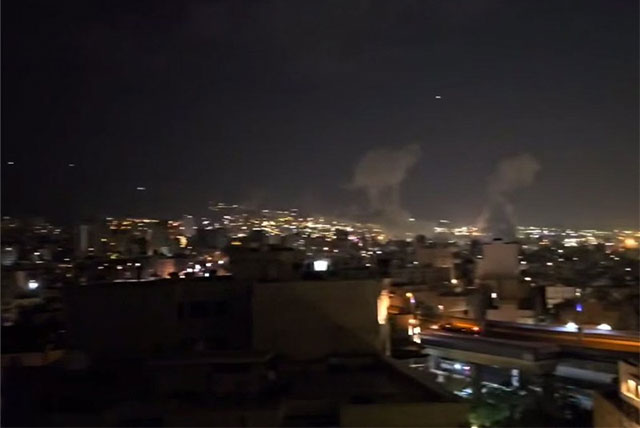
Israel Launches Major Strike on Iran’s Nuclear and Military Infrastructure
Israel Launches Major Strike on Iran’s Nuclear and Military Infrastructure
Tashkent, Uzbekistan (UzDaily.com) — In the early hours of 13 June, Israeli Air Force jets carried out a series of strikes targeting key Iranian sites, including nuclear and missile complexes, the command structure of the Islamic Revolutionary Guard Corps (IRGC), and the residences of high-ranking military officials. The operation was code-named “Rising Lion.”
According to media reports, the strikes hit facilities in Tehran, Natanz, Khondab, and other regions housing uranium enrichment centers, missile production plants, and IRGC headquarters. Following the bombardment of Tehran, air raid sirens were heard over the capital. In response, Israel closed its airspace and declared a state of emergency nationwide.
Israeli Defense Minister Israel Katz warned of potential retaliatory attacks from Iran and urged citizens to brace for further escalation. Prime Minister Benjamin Netanyahu stated the operation would continue “until the threat is eliminated.”
Heavy Losses Among Iran’s Top Command
Iranian state news agency Tasnim confirmed the deaths of IRGC Commander-in-Chief Hossein Salami, Chief of the General Staff of Iran’s Armed Forces Mohammad Bagheri, and senior general Gholam Ali Rashid. Two prominent nuclear scientists — Fereydoon Abbasi-Davani and Mohammad Mehdi Tehranchi — were also killed. Civilian casualties were reported as well, including the deaths of children in residential areas of Tehran.
U.S. Not Involved, Iran Vows Retaliation
U.S. Secretary of State Marco Rubio stated that Washington had no role in the attack and did not assist Israel, though he emphasized that protecting American forces in the region remains a priority. The U.S. confirmed it had been informed of the planned strikes but did not participate in the operations.
In response, Iran’s Supreme Leader Ayatollah Khamenei condemned the Israeli action as a “complete crime,” warning that Israel faces a “bitter and terrifying fate.” He reportedly granted the Iranian armed forces “full freedom of action” to respond.
The Islamic Revolutionary Guard Corps declared that the attack “will not go unanswered,” promising a “harsh and decisive” response.
Aftermath: Global Reactions and Economic Shockwaves
The International Atomic Energy Agency (IAEA) confirmed that Israeli strikes hit Natanz and began monitoring radiation levels in the area.
Following the attack, Iran closed its airspace, prompting commercial airlines to reroute flights.
Global markets reacted instantly: oil prices surged by 6% to 9%, stock markets fell, and investors flocked to safe-haven assets such as gold, the Swiss franc, and the Japanese yen.
Several countries, including China and Iraq, implemented heightened security measures and temporarily closed sections of their airspace.
UN Secretary-General António Guterres expressed deep concern over the risk of further military escalation and urged both sides to exercise restraint.